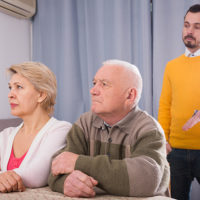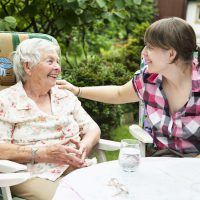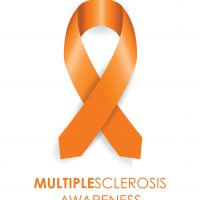August 14, 2017 by Dean Bellefeuille

It is a common problem for many older adults – falling and staying asleep for a full night’s rest. Apart from feeling a little foggy the next morning, however, as well as feeling the need for an afternoon snooze to catch up on lost sleep, the repercussions have felt marginal. That is, until research recently revealed a possible link between senior sleep disorders and Alzheimer’s disease. (more…)
August 7, 2017 by Dean Bellefeuille

Feeling safe, protected and cared for is so wonderful. Dads and moms thrive on ensuring their young children are enveloped within the comfort of knowing their needs will be satisfied, providing the safety net that permits them the self-confidence to explore the world about them. Yet there comes a phase in all children’s lives when the craving for self-sufficiency outweighs the benefit of protection, and they have to discover firsthand what it means to stumble, fall and get back up again by themselves. (more…)
July 24, 2017 by Dean Bellefeuille

For those providing care for a senior struggling with the effects of dementia, a variety of complex behaviors must be very carefully managed, but perhaps the most challenging include hallucinations, illusions, and suspicions that other individuals are out to cause him problems or ill will. Mistaken impressions such as these take place most often in the late stages of progressive dementia as a result of changes within the brain. It’s essential to first understand the reason behind these emotions and actions, and to deal with the root cause. (more…)
July 11, 2017 by Dean Bellefeuille

Like they say, there’s no place like home; but what do you do when a senior with dementia insists on going home – when he/she currently IS home? Regrettably, when caring for an elderly person with Alzheimer’s disease or another form of dementia, this is an all too common dilemma. And the confusion and plaintive yearning being expressed are simply heartbreaking – and, if we are truthful, aggravating. (more…)
June 20, 2017 by Dean Bellefeuille

The life of an Alzheimer’s caregiver is often complicated. In our previous blog, we discussed how to help determine when it’s time for a senior with Alzheimer’s to stop driving, and that is just one of the big decisions that Alzheimer’s caregivers have to make when it comes to making sure their loved ones are safe and healthy. As Alzheimer’s disease progresses, it’s common for family caregivers to want to take over and do everything for their senior loved one to ensure that he or she is as comfortable as possible. However, while this seems easier and more loving, it’s still very important to help the senior maintain his or her sense of dignity and independence. Try some of these Alzheimer’s care tips to provide assistance instead, maximizing independence and sense of self-worth: (more…)
June 8, 2017 by Dean Bellefeuille

The ability to leave the house and travel through Syracuse or wherever we want whenever we want is a freedom that we often take for granted. For older adults, driving is much more than just a mode of transportation; it symbolizes both competence and independence. And the thought of giving up that independence can be very difficult, particularly for seniors with Alzheimer’s.
The need for sustained concentration and quick reaction time tends to decline as we age, and for seniors with Alzheimer’s disease, this process accelerates dramatically, making it hard for family and friends to determine when it’s time for the senior to stop driving and find alternate transportation options. (more…)
May 11, 2017 by Dean Bellefeuille

Alzheimer’s disease has become somewhat of an epidemic in recent years, and it’s gotten harder and harder to tell fact from fiction when it comes to symptoms, treatments, and risk factors.
The Alzheimer’s care specialists from At Home Independent Living in Syracuse, NY are here to help. We’ve confronted some of the most common myths and revealed the truths behind them:
(more…)
May 5, 2017 by Dean Bellefeuille

Imagine waking up in a room you don’t recognize, unable to remember how you got there or even what your name is. Your total confusion swiftly turns into fear and maybe rage, and you find yourself yelling at the stranger at your bedside who is trying to help you calm down. (more…)
March 23, 2017 by Dean Bellefeuille

As Jane Austen once said, “There is nothing like staying at home for real comfort.” And for those with a chronic illness, like multiple sclerosis (MS), comfort is essential, as is remaining safe. If a loved one has been diagnosed, the initial step in providing MS home care should be to make the appropriate modifications to the home so that it is a safe, comfortable sanctuary, and not a hazardous place.
(more…)
March 9, 2017 by Dean Bellefeuille

Although there is no cure for multiple sclerosis (MS), hundreds of thousands of people in the United States are living with it – around 400,000 people to be exact, and of that, 86 percent of multiple sclerosis patients list fatigue as the number one symptom of the disease. The cause of MS is not known; it is not contagious or known to be directly inherited, but factors that may come into play include the following: (more…)










